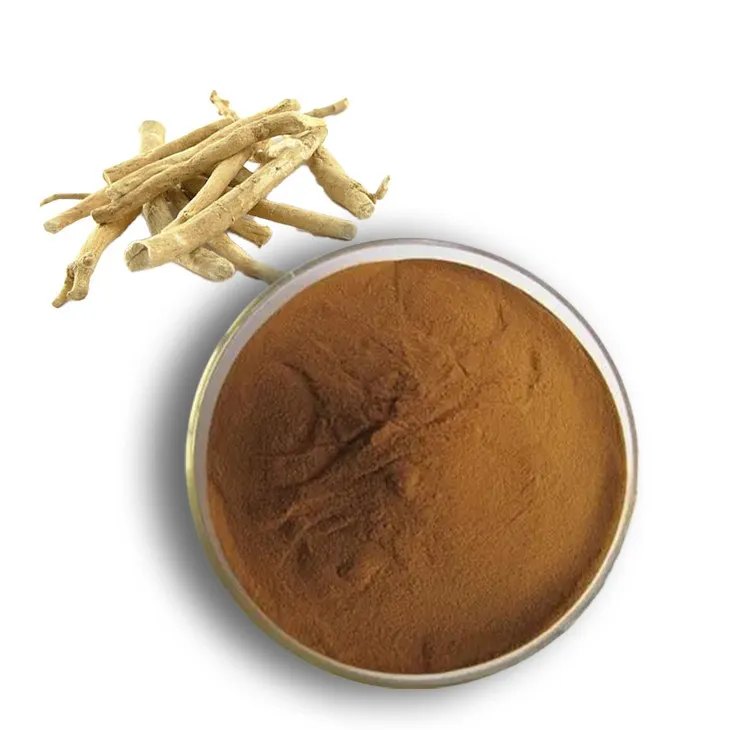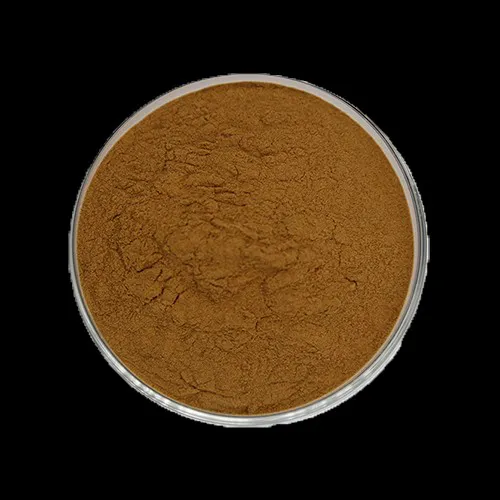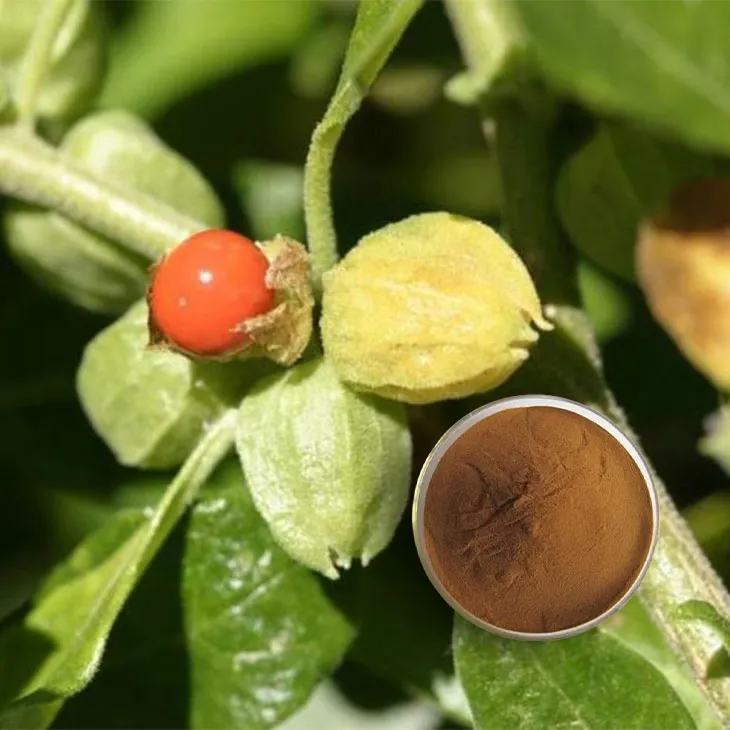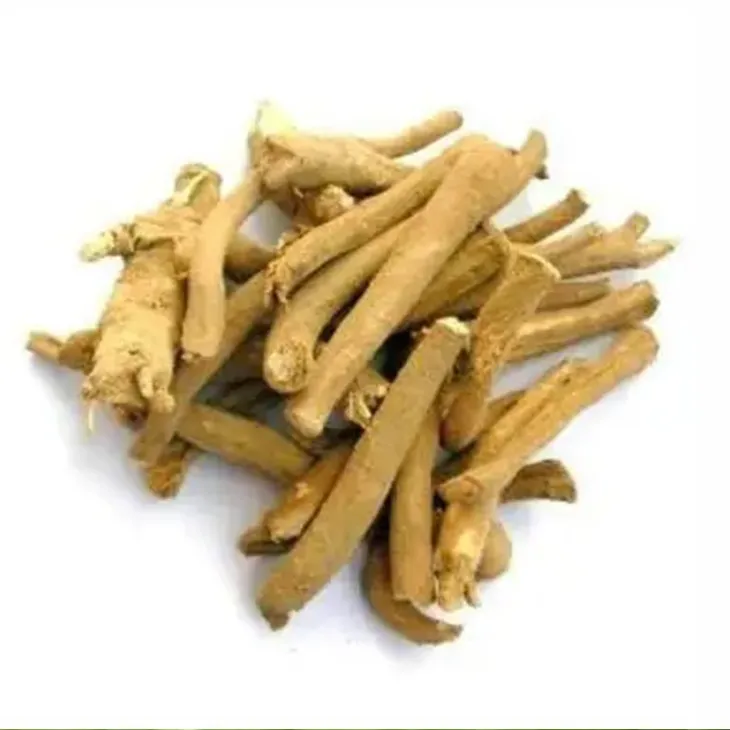- 0086-571-85302990
- sales@greenskybio.com
Bulk purchase of Withania somnifera extract.
2024-12-01

1. Introduction to Ashwagandha Extract
Ashwagandha, scientifically known as Withania somnifera, has been used in traditional Ayurvedic medicine for centuries. Its extract is rich in a variety of bioactive compounds such as withanolides, which are believed to be responsible for many of its potential health benefits.

2. Reasons for Bulk Purchase by Researchers and Laboratories
2.1 Pharmacological Research
For researchers, bulk purchase of Ashwagandha extract is essential for conducting in - depth pharmacological research. The large quantity allows for a more comprehensive study of how the extract interacts with various biological systems. For example, it can be used to investigate its effects on the nervous system. Researchers can study its potential role in reducing stress and anxiety, which is thought to be related to its modulation of neurotransmitters like gamma - aminobutyric acid (GABA).
2.2 Drug Development
In the process of potential drug development, a significant amount of Ashwagandha extract is required. Scientists need to perform a series of experiments, including in - vitro and in - vivo studies. Bulk purchase ensures that there is an adequate supply throughout the different stages of research. This includes pre - clinical trials, where the extract is tested on animals to evaluate its safety and efficacy, and later, if successful, clinical trials on human subjects.
3. Benefits for Importers and Distributors
3.1 Meeting Market Demand
With the growing popularity of Ashwagandha due to its perceived health benefits, there is an increasing market demand. Importers and distributors can take advantage of bulk procurement to meet this rising demand in different regions. For instance, in regions where the health and wellness trend is strong, such as North America and Europe, consumers are actively seeking products containing Ashwagandha extract. By purchasing in bulk, importers and distributors can ensure that they have enough stock to supply to retailers and ultimately to the end - consumers.
3.2 Streamlining the Supply Chain
Bulk purchase helps in streamlining the supply chain. When buying in large quantities, importers and distributors can deal directly with the manufacturers or large - scale suppliers. This reduces the number of intermediaries, or middle - men, involved in the process. Fewer middle - men mean lower costs associated with handling, transportation, and markup. As a result, the overall cost of the Ashwagandha extract can be reduced, making it more competitive in the market.
3.3 Ensuring Quality and Stability of Supply
Another advantage for importers and distributors is the ability to ensure a stable supply of high - quality Ashwagandha extract. By establishing long - term relationships with reliable suppliers through bulk purchase agreements, they can have better control over the quality of the product. This includes ensuring that the extract is sourced from high - quality raw materials, processed under proper manufacturing conditions, and meets the required quality standards. A stable supply is crucial for maintaining customer satisfaction and loyalty, as consumers expect to be able to purchase products containing Ashwagandha extract consistently.
4. Considerations in Bulk Purchase
4.1 Quality Assurance
When making a bulk purchase of Ashwagandha extract, quality assurance is of utmost importance. The extract should be sourced from reliable suppliers who follow good manufacturing practices (GMP). This includes ensuring that the raw materials are of high quality, properly identified, and free from contaminants. Additionally, the extraction process should be standardized to ensure consistency in the composition and potency of the extract. Certifications such as ISO certifications can also be an indicator of a supplier's commitment to quality.
4.2 Pricing
Pricing is a crucial factor in bulk purchase decisions. Importers, distributors, and researchers need to compare prices from different suppliers. However, it is important not to sacrifice quality for a lower price. Bulk purchases may sometimes lead to better pricing due to economies of scale, but it is necessary to ensure that the price - quality ratio is favorable. Suppliers may offer different pricing models, such as volume - based discounts or long - term contract pricing.
4.3 Regulatory Compliance
Depending on the region of use and distribution, Ashwagandha extract may be subject to various regulatory requirements. For example, in the food and dietary supplement industry, it needs to comply with regulations regarding labeling, safety, and purity. In the pharmaceutical industry, even more stringent regulations apply for its use in drugs. Bulk purchasers must ensure that the extract they are buying meets all relevant regulatory requirements in the target markets.
5. Sourcing of Ashwagandha Extract
5.1 Geographical Origins
Ashwagandha is native to India, and a significant amount of the world's supply still comes from this region. However, it is also grown in other parts of the world, such as Africa and some parts of Asia. The geographical origin can affect the quality and characteristics of the extract. For example, the soil composition, climate, and cultivation methods in different regions may result in variations in the concentration of bioactive compounds in the plant. Therefore, when sourcing Ashwagandha extract in bulk, it is important to consider the origin and its potential impact on quality.
5.2 Organic vs. Conventional
There is also a choice between organic and conventional Ashwagandha extract. Organic extract is produced without the use of synthetic pesticides, fertilizers, or genetically modified organisms (GMOs). Some consumers prefer organic products due to concerns about environmental sustainability and potential health risks associated with chemical residues. However, organic extract may be more expensive due to the higher cost of production. Bulk purchasers need to weigh the market demand for organic vs. conventional products and the associated costs when making their sourcing decisions.6. Storage and Shelf - Life Considerations
6.1 Storage Conditions
Proper storage conditions are essential to maintain the quality of Ashwagandha extract. The extract should be stored in a cool, dry place, away from direct sunlight. Exposure to heat, moisture, and light can degrade the bioactive compounds in the extract, reducing its potency and effectiveness. In addition, it should be stored in airtight containers to prevent oxidation, which can also affect the quality of the extract.
6.2 Shelf - Life
The shelf - life of Ashwagandha extract can vary depending on factors such as the extraction method, storage conditions, and the presence of preservatives. Generally, well - stored extract can have a shelf - life of one to two years. However, it is important to monitor the quality of the extract over time, especially for long - term storage. Regular testing for potency and quality can help ensure that the extract remains effective and safe for use.7. Future Trends in Bulk Purchase of Ashwagandha Extract
7.1 Increasing Demand in the Pharmaceutical Industry
As research on Ashwagandha's pharmacological properties continues to progress, there is likely to be an increasing demand for its extract in the pharmaceutical industry. The potential for developing new drugs based on its bioactive compounds may drive more bulk purchases by pharmaceutical companies. This could also lead to more standardized and regulated production processes to meet the high - quality requirements of the industry.
7.2 Expansion in the Nutraceutical Market
In the nutraceutical market, the demand for Ashwagandha extract is expected to grow steadily. With the increasing consumer awareness of natural health products, more and more people are turning to Ashwagandha - based supplements. Bulk purchasers in this market will need to focus on product innovation, such as developing new formulations and delivery methods, to stay competitive.
7.3 Sustainable Sourcing
There will be a growing emphasis on sustainable sourcing of Ashwagandha extract. As environmental and social responsibility becomes more important to consumers and businesses alike, bulk purchasers will need to ensure that their suppliers follow sustainable cultivation and harvesting practices. This may include promoting fair trade, protecting biodiversity, and reducing the environmental impact of production.FAQ:
What are the main bioactive compounds in Ashwagandha extract?
Ashwagandha extract is rich in withanolides, which are considered as the main bioactive compounds. These withanolides have been associated with various potential health benefits such as anti - stress, anti - inflammatory, and antioxidant properties.
How can one ensure the quality of bulk - purchased Ashwagandha extract?
To ensure the quality of bulk - purchased Ashwagandha extract, one should look for suppliers who follow good manufacturing practices (GMP). Check for certifications such as ISO certifications. Also, request for quality control reports which include tests for purity, potency, and absence of contaminants. Analyzing the extract for the presence of key bioactive compounds like withanolides can also help in assessing its quality.
What are the potential applications of Ashwagandha extract in drug development?
Ashwagandha extract has potential applications in drug development mainly due to its various pharmacological properties. For example, its anti - stress properties could be explored for developing drugs for stress - related disorders. The anti - inflammatory and antioxidant properties might be useful in developing drugs for treating chronic inflammatory conditions and diseases related to oxidative stress. However, extensive research including pre - clinical and clinical trials is still needed to fully understand its potential in drug development.
How does bulk purchase of Ashwagandha extract benefit end - users?
Bulk purchase of Ashwagandha extract benefits end - users in multiple ways. Importers and distributors who buy in bulk can reduce costs, which may lead to more affordable products for consumers. Also, it helps in ensuring a stable supply, so end - users can have access to Ashwagandha extract consistently. With more research being possible due to bulk availability for researchers, there may be better understanding of its benefits and more effective products in the future for end - users.
Are there any regulations regarding the bulk purchase and import of Ashwagandha extract?
Yes, there are regulations regarding the bulk purchase and import of Ashwagandha extract. Different countries may have their own regulations regarding the import of herbal extracts. These regulations may include requirements for quality control, proper labeling, and compliance with safety standards. For example, in some regions, the extract needs to meet certain purity and potency criteria and may require approval from relevant regulatory bodies before it can be imported and sold in bulk.
Related literature
- Pharmacological Review of Ashwagandha: A Rasayana (Rejuvenator) of Ayurveda"
- "The Therapeutic Potential of Ashwagandha (Withania somnifera) in Neurodegenerative Diseases"
- "Ashwagandha: An Ancient Indian Herb and a Rasayana for Modern Times"
- ▶ Hesperidin
- ▶ citrus bioflavonoids
- ▶ plant extract
- ▶ lycopene
- ▶ Diosmin
- ▶ Grape seed extract
- ▶ Sea buckthorn Juice Powder
- ▶ Beetroot powder
- ▶ Hops Extract
- ▶ Artichoke Extract
- ▶ Reishi mushroom extract
- ▶ Astaxanthin
- ▶ Green Tea Extract
- ▶ Curcumin Extract
- ▶ Horse Chestnut Extract
- ▶ Other Problems
- ▶ Boswellia Serrata Extract
- ▶ Resveratrol Extract
- ▶ Marigold Extract
- ▶ Grape Leaf Extract
- ▶ blog3
- ▶ blog4
-
The best lemon juice powder in nature.
2024-12-01
-
Organic Vitamin K2 Powder Suppliers
2024-12-01
-
Bulk purchase of L - tyrosine.
2024-12-01
-
Vitamin K2 Manufacturers
2024-12-01
-
100% Pure Natural Rutin.
2024-12-01
-
Chinese Citrus Bioflavonoid Suppliers.
2024-12-01
-
Uridine-5'-monophosphate Disodium salt
2024-12-01
-
Baicalin
2024-12-01
-
Sophora Flavescens Root Extract
2024-12-01
-
Red Wine Extract
2024-12-01
-
Citrus Aurantium Extract
2024-12-01
-
Artichoke Leaf Extract
2024-12-01
-
Alfalfa Meal
2024-12-01
-
Coconut Water Powder
2024-12-01
-
Green Tea Extract
2024-12-01
-
Kelp Extract Powder
2024-12-01





















